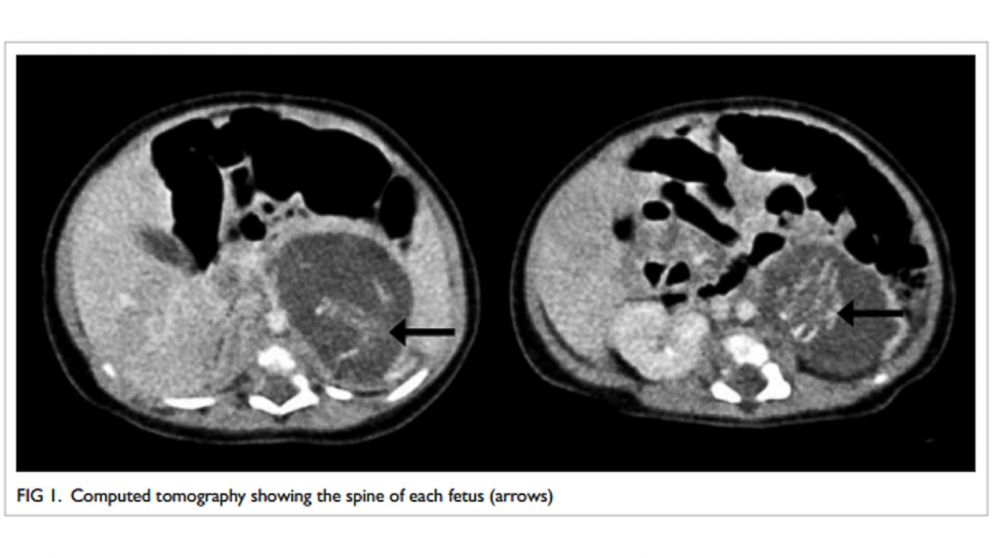Baby Girl Born With Possible Absorbed Twins Inside Her
A baby born in Hong Kong at first appeared to have a cyst.
— -- A baby girl born in Hong Kong appeared to have a growth of some kind in her left side, but doctors soon discovered the growth contained what could be "absorbed" siblings.
The nearly 9-pound baby girl had a rare condition called fetus-in-fetu, which happens when a partially developed fetus becomes incorporated into a normally developing fetus (its twin) in the womb. This condition affects about 1 in 500,000 births, according to the case study published in the Hong Kong Medical Journal this month.
The mass was between the girl's liver and left kidney, and it included two partially formed fetus-like structures, one weighing half an ounce and the other weighing a third of an ounce.

Each structure included a spine, intestines, bones with bone marrow, "primitive" brain matter, a rib cage and an umbilical cord, according to the study. The study authors said the partially formed fetuses and the baby girl shared the same DNA, fitting a popular theory that the woman was initially pregnant with identical triplets, but researchers aren't sure this is what happened.
Judging by the body parts they found in the baby girl, the doctors determined that the absorbed twins could have been up to 10 weeks old before their growth stopped and they were absorbed. But the mechanism for this "absorption" is not fully understood, the study authors wrote, so it's also possible the extra fetuses were absorbed earlier and grew with the baby girl in the womb.
The authors suggested that perhaps these structures may have been a teratoma, a kind of tumor containing different types of tissue that is usually seen in women of reproductive age, rather than absorbed identical siblings.
Dr. Jane Corteville, an OB/GYN at University Hospitals Case Medical Center in Cleveland, Ohio, who has studied teratomas and fetus-in-fetu, said it's not clear exactly what happened since doctors didn't catch the growth in the first five weeks of gestation. Corteville, who didn't see the Hong Kong baby, said fetus-in-fetu is so rare that in her 30-year career, she's only seen one case like this.
"I think we see these on occasion and they're bizarre," she said. "And I think they do give us kind of some insight maybe -- but not very much -- into what happens during early development."
To better understand them, she said doctors would have to pick them up at the beginning of pregnancy, but the fetuses and the masses are too little to see.
The Hong Kong baby underwent surgery to have the masses removed, according to the researchers.



